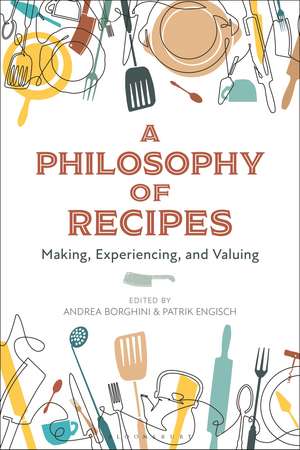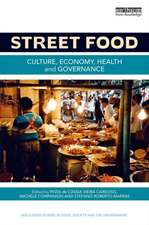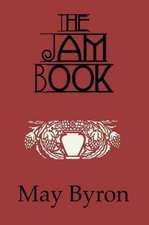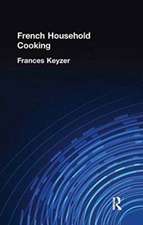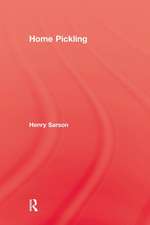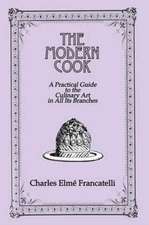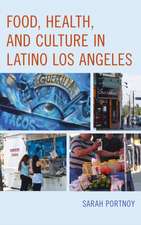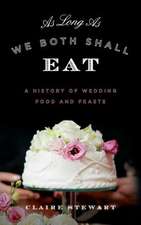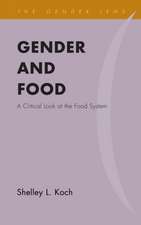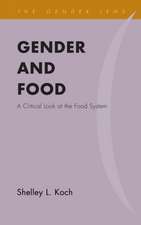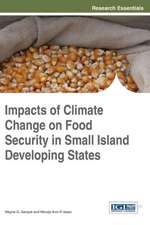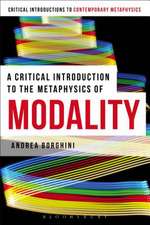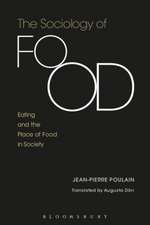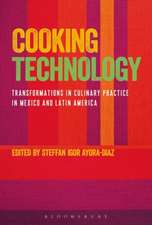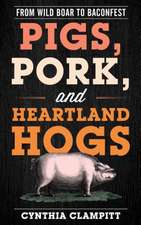A Philosophy of Recipes: Making, Experiencing, and Valuing
Editat de Andrea Borghini, Patrik Engischen Limba Engleză Paperback – 23 aug 2023
| Toate formatele și edițiile | Preț | Express |
|---|---|---|
| Paperback (1) | 192.82 lei 6-8 săpt. | +73.21 lei 6-10 zile |
| Bloomsbury Publishing – 23 aug 2023 | 192.82 lei 6-8 săpt. | +73.21 lei 6-10 zile |
| Hardback (1) | 541.20 lei 6-8 săpt. | |
| Bloomsbury Publishing – 12 ian 2022 | 541.20 lei 6-8 săpt. |
Preț: 192.82 lei
Preț vechi: 250.15 lei
-23% Nou
Puncte Express: 289
Preț estimativ în valută:
36.90€ • 40.07$ • 30.100£
36.90€ • 40.07$ • 30.100£
Carte tipărită la comandă
Livrare economică 23 aprilie-07 mai
Livrare express 18-22 martie pentru 83.20 lei
Preluare comenzi: 021 569.72.76
Specificații
ISBN-13: 9781350270336
ISBN-10: 1350270334
Pagini: 296
Dimensiuni: 156 x 234 x 25 mm
Greutate: 0.41 kg
Editura: Bloomsbury Publishing
Colecția Bloomsbury Academic
Locul publicării:London, United Kingdom
ISBN-10: 1350270334
Pagini: 296
Dimensiuni: 156 x 234 x 25 mm
Greutate: 0.41 kg
Editura: Bloomsbury Publishing
Colecția Bloomsbury Academic
Locul publicării:London, United Kingdom
Caracteristici
The first volume to provide a sustained theoretical investigation of how recipes form culinary cultural heritage and tradition
Notă biografică
Andrea Borghini is Associate Professor of Philosophy at the University of Milan, Italy, and Director of Culinary Mind, Research Center for the Philosophy of Food based at the University of Milan, Italy. Patrik Engisch is adjunct lecturer at the University of Fribourg, Switzerland, and coordinator of Culinary Mind, Research Center for the Philosophy of Food based at the University of Milan, Italy.
Cuprins
Introduction: A Philosophy for Recipes: Questions and Methods, Andrea Borghini, University of Milan, Italy and Patrik Engisch, University of Fribourg, SwitzerlandPart I: Making1. Seven Philosophical Questions About Recipes, Andrea Borghini, University of Milan, Italy2. Recipes Without Makers, Sanna Hirvonen, University of Milan, Italy3. The Taste(s) of a Recipe, Davide Bordini, University of Liege, Belgium4. Dip It Before You Eat It! On Recipes and the Architecture of a Dish, Andrea Borghini, University of Milan, Italy and Gabriele Ferretti, University of Bochum, Germany5. Body, Tool and Technique: Elements of Work in the Japanese Kitchen, Merry White, Boston University, USA6. On Attunement: Fermentation, Feminist Ethics, and Relationality in Saké-making Practices, May Hey, Concordia University, USAPart II: Tasting7. Historical Dishes and the Search for Past Tastes, Carolyn Korsmeyer, University of Buffalo, USA8. Recipes, Tradition, and Representation, Patrik Engisch, University of Fribourg, Switzerland9. Authenticity, Style, and Recipe in Wine, Cain Todd, University of Lancaster, UK10. Writing Cookbooks behind Barbed Wire, Barbara Haber, Food Writer, Massachusetts, USA11. A Puzzle About Aftertaste, Akiko Frischhut, Akita University, Japan and Giuliano Torrengo, University of Milan, ItalyPart III: Valuing12. Recipes for Theory Making, Lisa Heldke, Gustavus Adolphus College, USA13. The Recipes of Genius on Chef's Table, Rafi Grosglik, Ben-Gurion University of the Negev, Israel and David Kyle, University of California, Davis, USA14. Food Presentations and Recipes: Is There a Space for Copyright and Other Intellectual Property Rights?, Enrico Bonadio, University of London, UK and Natalie Weissenberger15. The Ethical Dimensions of Recipe Modification, Anne Barnhill, John Hopkins University, USA and Matteo Bonotti, Monash University, USA16. Is Social Gastronomy a Recipe for Peace?, Johanna Mendelson Forman, American University's School of International Service, USA17. A Philosophy of Meat in the Early Twenty First Century, Benjamin Aldes WurgaftBibliographyIndex
Recenzii
A diverse and rich collection that will serve as inspirational reading for both the philosopher and non-philosopher alike.
The philosophy of food is hot at the moment, but this book goes beyond the usual fare by suggesting-and indeed demonstrating-that recipes should be an item of central philosophical concern. Cross-disciplinary but without losing philosophical focus, this collection argues that recipes reflect our metaphysical and ethical commitments in unique and profound ways.
A fascinating collection of essays that explore not only what recipes are, but also what recipes do, and how they mediate and shape our relationship to food and cooking.
As more scholars recognize what rich sources recipes are for understanding human societies, this edited collection of meditations on the theme will be a very useful guide. The central question of how to think with recipes is answered beautifully and diversely here in a book that engages with all kinds of parameters, including law, cooking tools, and microbial motivations.
The philosophy of food is hot at the moment, but this book goes beyond the usual fare by suggesting-and indeed demonstrating-that recipes should be an item of central philosophical concern. Cross-disciplinary but without losing philosophical focus, this collection argues that recipes reflect our metaphysical and ethical commitments in unique and profound ways.
A fascinating collection of essays that explore not only what recipes are, but also what recipes do, and how they mediate and shape our relationship to food and cooking.
As more scholars recognize what rich sources recipes are for understanding human societies, this edited collection of meditations on the theme will be a very useful guide. The central question of how to think with recipes is answered beautifully and diversely here in a book that engages with all kinds of parameters, including law, cooking tools, and microbial motivations.
